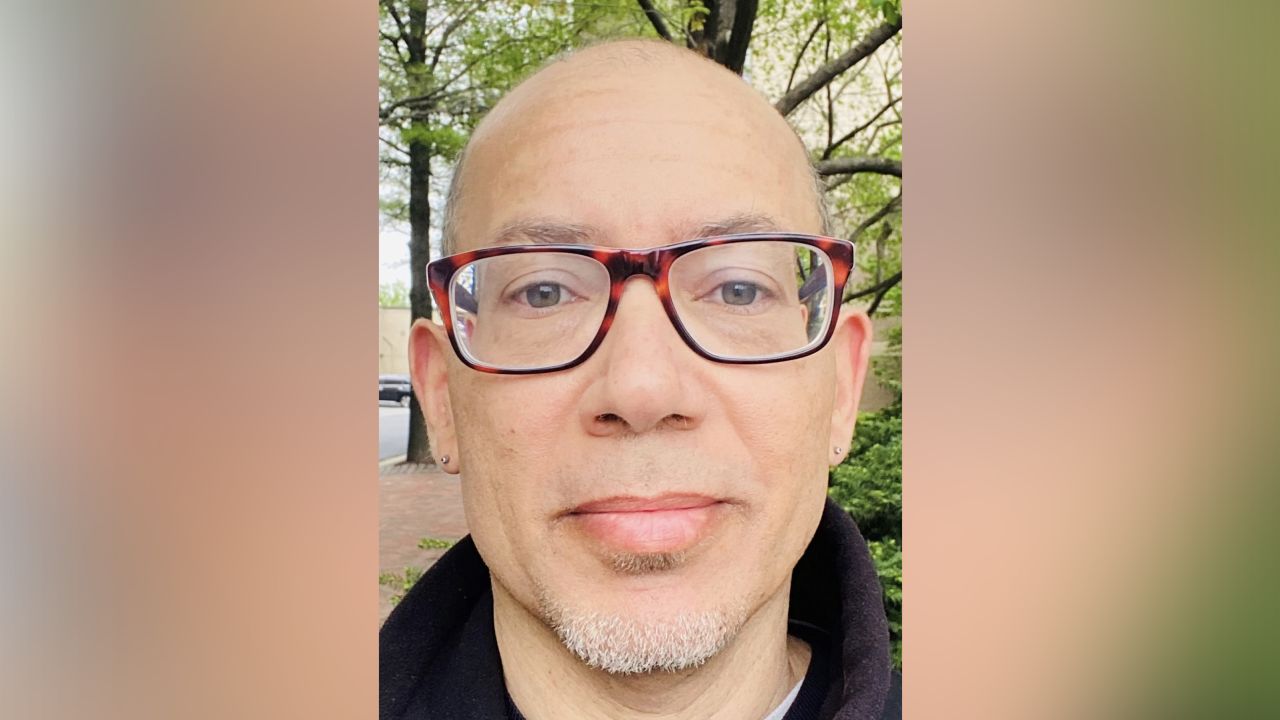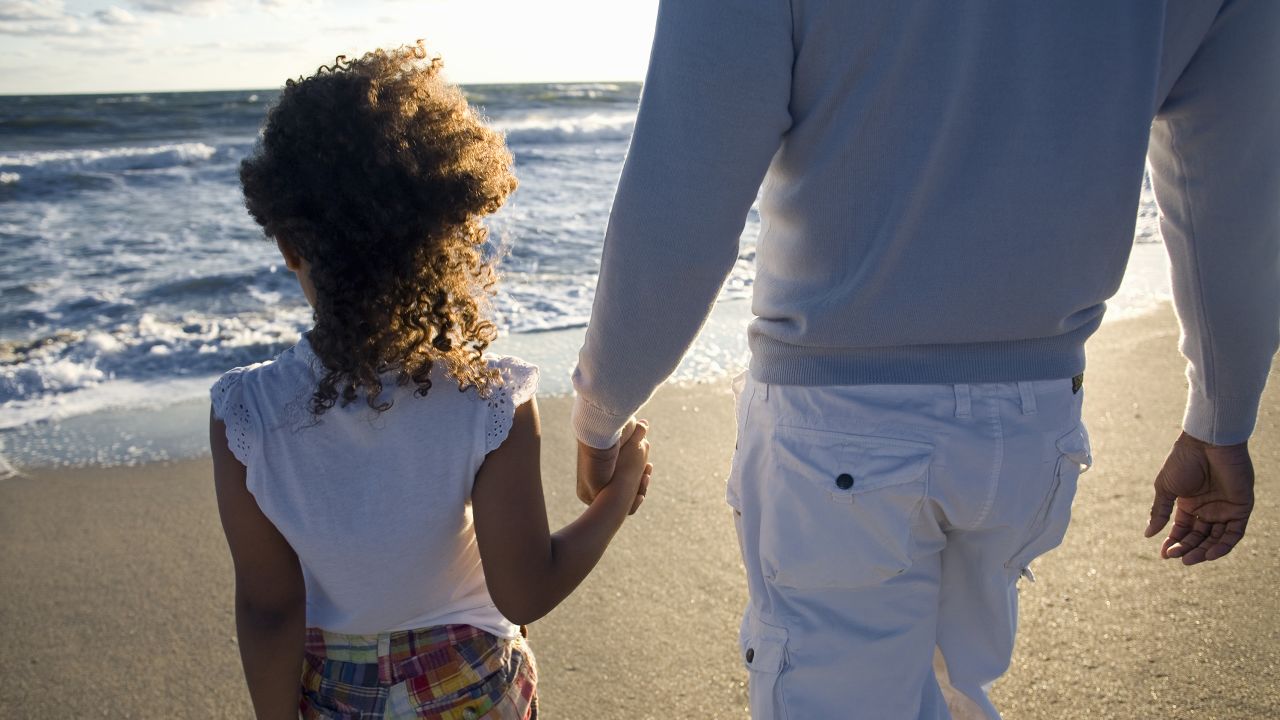Editor’s note: Steve Majors is the author of the memoir “High Yella,” and the forthcoming graphic novel “Light Bright.” He writes frequently on family, race, identity, class and culture, drawing largely on his experiences growing up as a white-appearing child in a Black family, and his life as a gay man raising two adopted Black daughters. The views expressed in this commentary are his own. Read more opinion at CNN.Editor’s Note:
There are lessons I have tried to teach my two Black daughters from an early age, positive lessons aimed at instilling pride in their culture and building their self-esteem.

Never let anyone touch your hair. Don’t allow anyone, even a friend, to get away with a racist joke or a racial slur. And always hold your head high so people can see you as the Black queens you are.
My daughters are now both in their teens. I want them to have the freedom to explore their world and learn how to navigate microaggressions, confront examples of discrimination and navigate potential social conflicts. I fear for their emotional and physical safety and I feel like I need to warn them that as young Black women, they face a complex world.
Like Black boys and young Black men, Black girls need to hear “The Talk.” That conversation, which has been going on for generations in Black families, is designed to prepare our kids for the sometimes-deadly risks they may encounter in the world, simply because of their race.
Decades of data shows that young Black men are disproportionately more likely to die in encounters with police than Whites. But young Black girls face some of the same vulnerabilities – as well as some particular ones.
My own daughters have rolled their eyes at some of my warnings over the years, always claiming they know how to handle themselves out in the world. Even so, in the car, as I teach my older daughter to drive, I find myself now nervously admonishing her not to “mean mug” bad drivers who cut her off or honk because another car is going too slow.
I look around at every impatient older White male driver and wonder if they would give my Black daughter the same grace they extend to other young drivers who make mistakes. I don’t want my daughter to end up as another victim of an apparent racist road rage attack.
I give my teenager the usual warnings Black parents tell their Black children: Don’t make sudden moves during a traffic stop. Never argue with the police. Keep your hands visible. The deaths of Sandra Bland and Breonna Taylor were tragic opportunities to remind us that like Black men, Black women may not be safe at the hands of some police officers, whether they encounter them during a traffic stop or while sleeping in their own homes. I make a mental note to tell her however that driving while Black can be dangerous, even if you’re fortunate enough not to be stopped by police.
In the aftermath of the tragic shooting this past April of Ralph Yarl, parents of Black children like me came to be more aware than ever about the limitations of “The Talk.”
We can warn our children to be mindful about the neighborhoods they walk in, but there is nothing that a 16-year-old kid could have done to prepare or protect himself from the danger that lay on the other side of a White man’s front door. That young man simply rang the wrong doorbell.
My Black daughters shouldn’t have to feel like they’re responsible for everyone else around them. Yet, after my oldest and her friend were the targets of a racist rant on a train, they were grateful that an older Black passenger intervened while others who were White stood by.
Black women are often expected to raise their voices and pick up cell phones to protect family, friends and even strangers. So when I speak to my daughters, I will explain that out in the world, Black people sometimes carry the burden of protecting themselves and anyone else who is Black.
I expect my daughters to be strong, young women who are unafraid to stand up for their ideas in the classroom. Yet when one of them tells me about an argument with a counselor, I feel the need to explain to them that Black girls can be body slammed to the ground inside a school or even pulled from the classroom in handcuffs, simply for strongly disagreeing with a teacher. In my mind, I wonder if there’s still time to warn her that White girls are often admired and celebrated for being outspoken or assertive, while Black girls risk unfair punishment.
I hope my daughters are treated just as respectfully as their White girlfriends when they go shopping. The dangers of shopping while Black are well documented; Black women are accustomed to being racially profiled by retail workers who follow them in stores. But a growing threat to Black women these days are their fellow shoppers.
TikTok has served up examples of White Karens or Kens falsely accusing Black women of stealing or assault. The next time I go shopping with my youngest, I vow to tell her to watch others as closely as they may be watching you. And I will instruct her to keep her receipts, even though a paper receipt might not be enough to prove she’s a good customer. As we’ve seen far too frequently, in case of a dispute, Black customers often need cell phone video to prove their side of a story.
Get Our Free Weekly Newsletter
- Sign up for CNN Opinion’s newsletter.
- Join us on Twitter and Facebook
I believe my daughters have the right to have their physical boundaries and racial identities respected. But when even a celebrity is caught openly bragging about his alleged mistreatment of Black women, it’s hard for me to hold my tongue about what I understand about the world today.
And when my 18-year-old daughter rolls her eyes and laughs off someone who catcalls her in public, I wonder how to share this lesson: Be sure a man loves you for your Blackness, but doesn’t fetishize it.
But while I worry that my daughters and other young Black women face unique risks because of their race and their gender, I’m not always sure that I’m the best person to deliver these messages. Part of the reason is that although I’m a Black man, I’m mixed-race and white appearing. And unlike my siblings who are darker skinned, I had no experience with “The Talk.” And yet, I’m the parent my daughters have got – light-skinned and male, though I may be. It falls to me, as best I can, to deliver these messages that could help them avoid future hurt or heartache.
Even as I share with my daughters the truth about the challenges they will face, I know in my heart that my beautiful daughters deserve to live in a world where parents don’t need to warn their children about the dangers of living while Black.
Until that day comes, we’ll need to talk.


